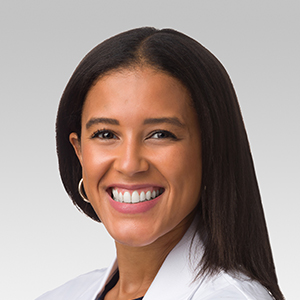Mohs Surgery: Questions and Answers
A Dermatologist Shares the Facts
Published December 2021
There are several treatment options for skin cancer. These include surgical excision and topical chemotherapeutic creams.
But, your physician could recommend another treatment that you might not be familiar with: Mohs surgery. Northwestern Medicine Dermatologist Julia Marie Mhlaba, MD, breaks down what you need to know about the procedure.
What Is Mohs Surgery?
This really is a skin-sparing surgery.— Julia Marie Mhlaba, MD
Mohs surgery is an effective treatment for some cases of basal cell and squamous cell carcinoma. These are types of skin cancer. During the procedure, the Mohs surgeon removes the skin cancer while leaving cancer-free layers of the skin. The tissue is quickly processed, after which the Mohs surgeon examines the pathology slides to ensure that there are no remaining cancer cells.
If there are remaining cancer cells observed, they will continue the process in "stages" until the cancer cells are fully removed.
What Are the Benefits?
Mohs surgery helps preserve as much healthy skin as possible.
"This really is a skin-sparing surgery," explains Dr. Mhlaba. "You can keep as much healthy skin as possible while leaving the most cosmetically appealing result."
The surgery occurs under local anesthesia. This means it is often much quicker than a similar surgery performed in the operating room. You will be awake for the procedure, you will likely have a shorter recovery time and you should be able to drive yourself home after discharge.
Who Is a Good Candidate?
Being a fit for Mohs surgery depends on a variety of factors, explains Dr. Mhlaba. In general, you may be a candidate if the cancer is:
- On your face, hands, feet or genitals
- Large in size
- Recurrent or aggressive histologic features
Ask your dermatologist or care team about your treatment options.
Can I Prevent Skin Cancer?
Most skin cancer is caused by or at least related to sun exposure, Dr. Mhlaba says.
"Sun protection is an important part of preventing skin cancers," she explains. "I recommend using sunscreen and sun-protective clothing, and avoiding peak exposure hours whenever you can."
If you are concerned about a spot or mole on your skin, see your dermatologist, Dr. Mhlaba says, especially if a spot is changing or associated with pain or bleeding.






